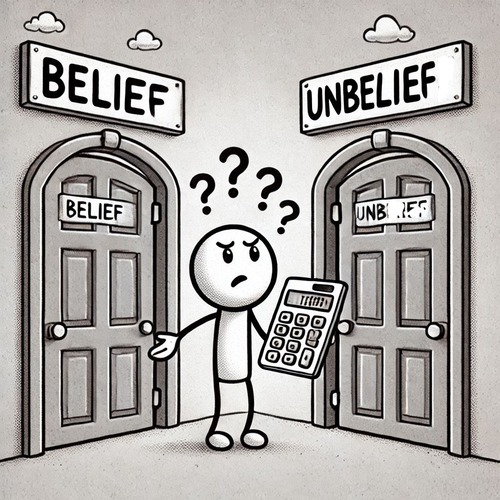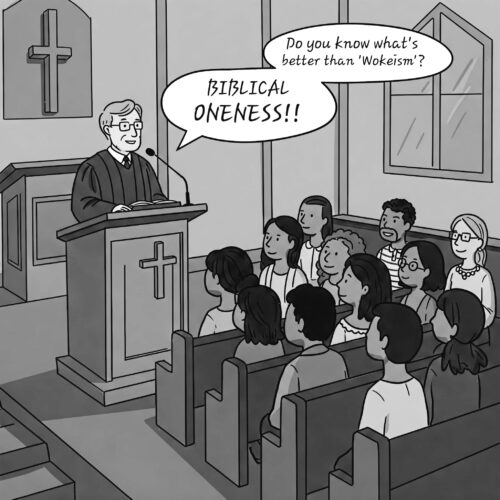Jewish Objections to Christianity: Addressing Messianic Challenges
Did Jesus Indeed Fulfil Messianic Prophecies?
Overview: From its early days, Christianity has faced serious objections from Judaism regarding its central claims about Jesus being the promised Messiah and Son of God. Understandably, from a traditional Jewish perspective, these Christian beliefs seem to contradict long-held interpretations of the Old Testament Scriptures and precepts of Torah law. Let’s examine three key Jewish objections and how Christians have thoughtfully engaged with them.
Rejecting Jesus’ Messianic Status A primary Jewish contention is Jesus did not fulfil the messianic prophecies in the Tanakh (Old Testament). The Old Testament promises a Messiah who would deliver Israel, restore the Davidic kingdom, and inaugurate an era of world peace. Christians may respond by pointing out the Messiah’s mission is to be completed only over two advents. Jesus’ first coming was as the “suffering servant” forenamed by Isaiah who would be “led like a lamb to the slaughter.” His miracles, resurrection, and the spread of Christianity demonstrate the beginning of messianic redemption to unfold in two phases—His second coming will accomplish all remaining prophecies of global restoration.
For a glimpse into the odds that Jesus met in fulfilling Old Testament prophecies during His first advent, read our post: Beating Quintillion-to-One Odds: How Jesus Fulfilled Impossible Prophecies.
The Accusation of Idolatry For Jews, ascribing divinity to a human figure—even Jesus—is to subvert Judaism’s strict ethical monotheism. However, Christian theology maintains Jesus was Himself YHWH (the LORD) incarnated as fully God and fully man—two natures united in one Person without contradiction. Christians uphold the Shema’s understanding of one God while revealing His miraculous Self-disclosure in human form. Drawing on Old Testament theophanies and portrayals of the Logos/Wisdom of God, Christianity presents a philosophically coherent Christology keeping with Judaism’s monotheistic foundation.
Superseding the Mosaic Law? Many Jewish scholars argue Christianity nullified the covenant laws articulated in the Torah, betraying Judaism’s scriptural heritage. Yet numerous New Testament passages uphold the moral precepts of the Law while reinterpreting ritual and civil statutes through the new covenant Christ established. The biblical dialectic of continuity and discontinuity reveals Christianity as a fulfilment and expansion of God’s covenantal relationship with Israel to ultimately include the nations (Gentiles). Jesus came not to abolish the Law, but bring its spiritual meaning to completion.
Jewish Arguments on the Trinity Some Jewish thinkers claim the Trinity doctrine of God eternally existing as a Unity of Three Persons has no precedent in Judaism’s scriptures or traditions. While the precise Trinitarian formulation emerged in the early Church, the theological roots trace back to Old Testament depictions of God’s Word/Wisdom as a distinct yet united manifestation. Rabbinic literature like the Zohar expresses parallels with the Trinitarian perspective, describing God as a unified reality yet internally differentiated.
Continuity and Discontinuity While real theological tensions exist, the fundamental premise of Christianity remains situated within the trajectory of Judaism’s Abrahamic covenants and Old Testament hopes. More than just sharing these foundational Scriptures, Christianity upholds Christ as the prophesied Jewish Messiah and Son of God who came to fulfil God’s redemptive plan unveiled through the Hebrew Bible. Far from rejecting its Jewish roots, Christianity represents their survival, renewal, and expansion—albeit in a revised form seemingly discontinuous on certain matters of Torah interpretation and communal boundary markers.
For a Jewish person, embrace of Christianity meant affirming Yeshua (Jesus) as the culminating revelation of the one true God of Israel. And for Gentiles, receiving Christ integrally joined them as co-heirs to Israel’s faith heritage. While sharp disagreements over Christology and covenant theology have caused a rupture, the Christian narrative still flows inextricably from its Judaic origins and Scriptures. Respectfully exploring this complex spiritual lineage can foster mutual understanding between two faiths eternally bound by their common roots and destiny.
References: Brown, M. L. (2003). Answering Jewish Objections to Jesus: General and Historical Objections. Baker Books. : Brown, M. L. (2006). Answering Jewish Objections to Jesus: Theological Objections. Baker Books. : McDowell, J., & McDowell, S. (2017). Evidence That Demands a Verdict: Life-Changing Truth for a Sceptical World. Thomas Nelson.
Related Reads
Editor's Pick

Rethinking Sickle Cell Anaemia: A Case for Intelligent Design
Sickle cell anaemia presents what many consider evolution’s strongest card—a genetic condition that causes suffering yet provides protection against malaria. [...]

‘Bad’ Design: Flaw in Nature Or Flaw in Our Perspective?
When the Eiffel Tower was first proposed, critics called it a monstrous eyesore that would ruin Paris forever. Today, it’s [...]

The Problem of Divine Absence: How Do Believers Cope?
WHEN GOD SEEMS FAR: THE GREAT DISCONNECT Ever wondered why God seemed so close to Joseph in his Egyptian prison, [...]

Is ‘Gay Christian’ a Biblically Acceptable Identity to Have?
THE QUESTION OF IDENTITY IN BIBLICAL PERSPECTIVE The term “gay Christian” has become increasingly common in contemporary religious discourse, representing [...]
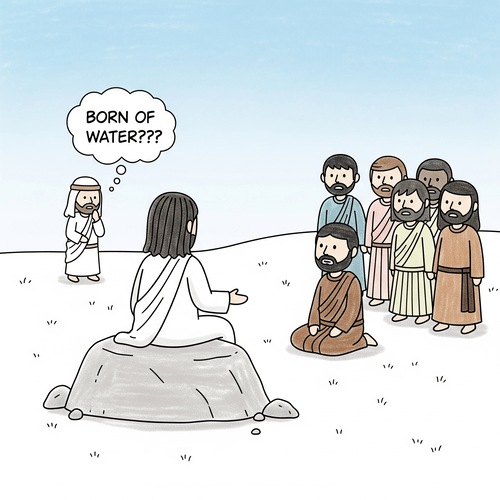
What Does ‘Born of Water’ in John 3:5 Mean?
THE REFORMED VIEW VS OTHER INTERPRETATIONS ”Jesus answered, ‘Truly, truly, I say to you, unless one is born of water [...]

The Lordship Salvation Controversy: What’s It All About?
Can someone be truly saved without making Jesus Christ their Lord? The question sits at the heart of one of [...]

1 John 5:6: How Do Water and Blood Reveal Jesus’ True Identity?
"This is he who came by water and blood—Jesus Christ; not by the water only but by the water and [...]
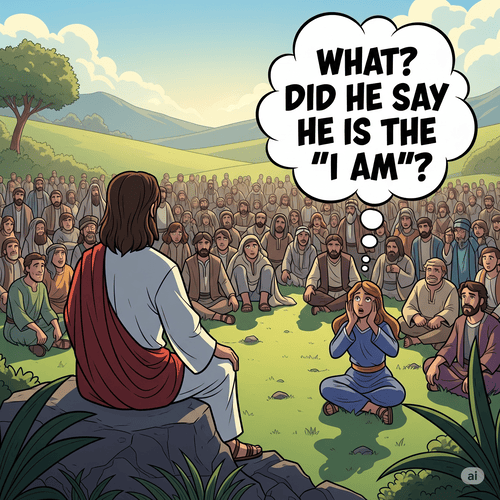
Is Jesus Yahweh? Answering Unitarian Objections
The question of whether Jesus Christ is truly God has divided Christians for centuries. While orthodox Christianity has consistently affirmed [...]
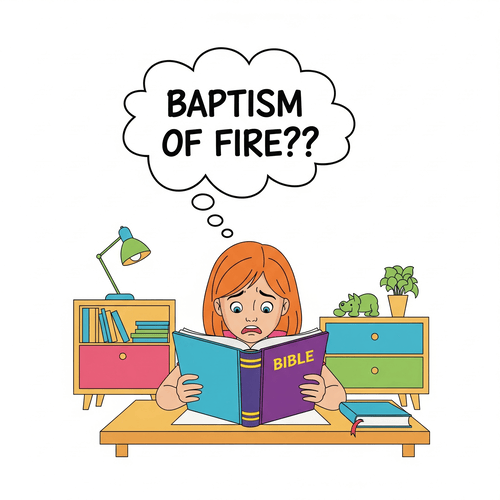
Matthew 3:11: What Is the Baptism of Fire?
When John the Baptist declared, “He will baptise you with the Holy Spirit and fire” (Matthew 3:11), his words carried [...]

From Rock to Stumbling Block: Why Jesus Called Peter Satan
In the span of just six verses (Matthew 16:13-28), Peter goes from receiving the highest praise from Jesus to getting [...]
SUPPORT US:
Feel the Holy Spirit's gentle nudge to partner with us?
Donate Online:
Account Name: TRUTHS TO DIE FOR FOUNDATION
Account Number: 10243565459
Bank IFSC: IDFB0043391
Bank Name: IDFC FIRST BANK




